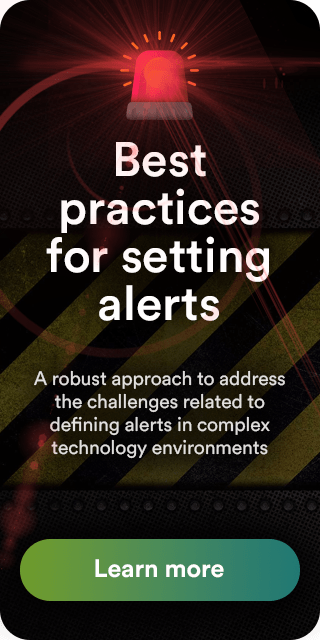Surely you have heard the term “smart home” some time, and you may have wondered “what is smart home?” but you’re not sure what it is about. Or you may already know perfectly what smart home is, but you want to increase your knowledge.
You have come to the right place! In this article we will anwer the wuestion “what is smart home?” and see some of its applications, both present and future. And at the end of the article we will also cover some aspects of smart home in regards to monitoring. Because we are that good!
What is smart home?
What is smart home? We call smart home the set of intelligent technologies that are used for the automation of homes and/or buildings, in order to improve aspects such as security, energy management or comfort.
But, what are we talking about when we say “intelligent technology”? Well, although it should also be applied to the approach we give to the different elements that make up smart home, when we talk about intelligent technology we refer to, as in many other fields, the application of IT to the home environment. In short, we mostly talk about what we like the most in Pandora FMS blog: information technology.
Some examples of smart home
To know some examples and uses of smart home, what better option than to classify them according to the specific benefits it pursues? Thus, in addition, we will be able to guess about some technologies that, although they have not yet been developed, it is likely that they will do so over the next few years.
Comfort
Everyone wants to be comfortable at home, and that is why this is one of the aspects we first think about when we think of smart home.
Currently, there are some devices which have already emerged, with the aim to make our home life more pleasant. From the very popular voice assistants, to the no less famous cleaning robots, which involve an approach of artificial intelligence and robotics to the domestic sphere. But not only them; intelligent lighting (controlled by voice, automated and adjustable) or controlling different functions (for example, thermostat or electric blinds) through your cellphone via Internet are some technologies we already can count on.
But, what about the future? The options will multiply. As the Internet of Things is developed, all the elements of your home will gain interconnection and reach new levels. You will be able to control your entire house with your voice and automate virtually any need you have in your home life. And not only that: the effects of smart home will be transferred outdoors through the use of multiple services. Our refrigerators will buy groceries autonomously when they deem it necessary (do not worry, they will not walk out through the door, but they will order what is necessary through the Internet) and intelligent objects themselves will be responsible, autonomously, for home maintenance. And these are just a few examples!
Communications
Today, we are obsessed with communications, and smart home is not uninvolved. We can already see it, through the aforementioned voice aids and functions to control some devices from our cellphone.
In the near future, the possibilities will multiply: from videoconference screens distributed throughout the house to the Internet integrating itselft with many elements on our home. Smart televisions, for example, are an outpost of what we will see in a couple of years, when our homes will become, indeed, a communications center in our lives.
Energy saving
Energy management matters to us, and even more each day. Smart home will help us with this task. We have already seen some examples, such as intelligent air-conditioning control. This will not only provide benefits in terms of comfort, but it will allow a more efficient management of energy consumption.
More examples: a wind or sun sensor will allow the system to make decisions, such as roll up an awning to prevent it from getting ripped on a windy day, or throw back electric blinds if we want to enjoy a sunny day. Certain electronic devices will be able to detect when they will be necessary or not and they will be switched off or swiched on depending on our needs. Even some will carry out their tasks adapting to the schedules in which rates are lower, reducing expenses.
Security
An always delicate issue, in fact, our home security is always an aspect that we want to take care of.
Devices such as alarms (of course, they already exist, but future smart home will aim to improve them), presence simulators and surveillance cameras will improve home security. Different detectors such as those of smoke, heat, water or gas presence will help us to act faster in the event of emergencies, and they could even be directly conected to public services such as the fire department.
Accesibility
For some people, smart home will mean a significative improvement in their life quality.
For example, people with reduced mobility, blind people, or people who suffer from some disease. In these cases, multiple devices will be a great help. Including intelligent devices that communicate by voice with blind people and others that move around the house to help those who have difficulties when moving around. Not to mention, why not, robots that carry out complete assistance functions. It may sound like science fiction, but they will soon be a reality.
Smart home and monitoring
To wrap things up, and after having seen “what is smart home?”, let us talk a little bit about monitoring.
As you may already know very well if you are a regular reader of this blog, system monitoring is responsible for ensuring the proper functioning of all types of devices and networks, in order to help anticipate their malfunction or solve issues quicker when the failure cannot be avoided.
As the use of technology increases, so does the need for good monitoring. Very soon, we will see it everywhere. Think, for example, of a building or a neighbourhood that has hundreds or thousands of devices connected to the Internet and distributed around common areas. In addition, smart home is part of the so-called revolution of the Internet of Things, and that requires a specific type of monitoring.
One of the things we know about IoT monitoring is that the monitoring systems’ flexibility is something to take into account. And it leads us directly to Pandora FMS.
Why?, because Pandora FMS is a flexible monitoring software, capable of monitoring devices, infrastructures, applications, services and business processes.
And now you may need more specific answers. Do you have specific needs and want to know exactly what Pandora FMS can monitor? It is very easy, you just have to send a message asking all your questions through the contact form.
Before doing it, and if you want to know more about the IoT monitoring of Pandora FMS, you can have a look at this link.
Do not hesitate to contact the Pandora FMS team and send us all your questions. We will be happy to assist you!

Traductora a francés e inglés. Me encantan las lenguas. Amante de la ropa oversize, la tarta de queso y el chocolate caliente en invierno. Me gusta leer, escuchar música, viajar y explorar cosas nuevas. Mi frase más temida por aquellos que me conocen es “he estado pensando…”
Translator into French and English. I love languages. Lover of oversized clothes, cheesecake and hot chocolate in winter. I like reading, listening to music, travelling and exploring new things. My most feared phrase by those who know me is “I’ve been thinking…”

















